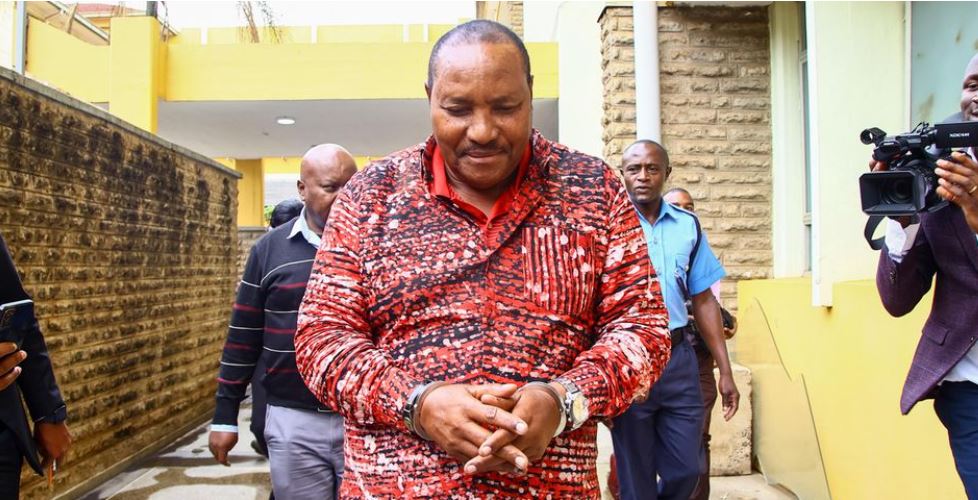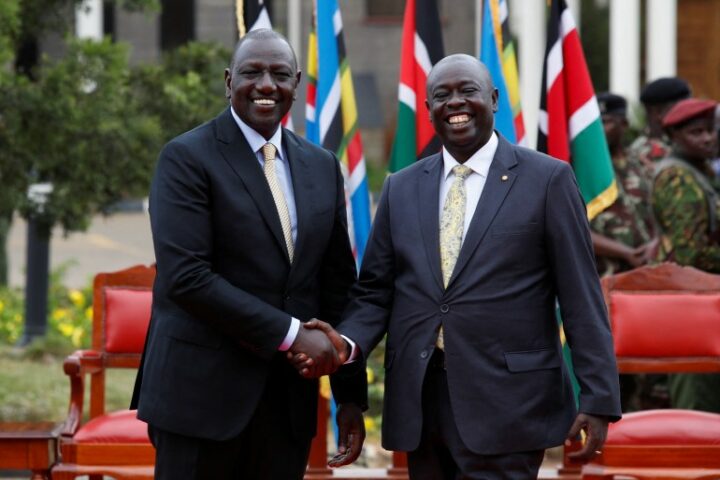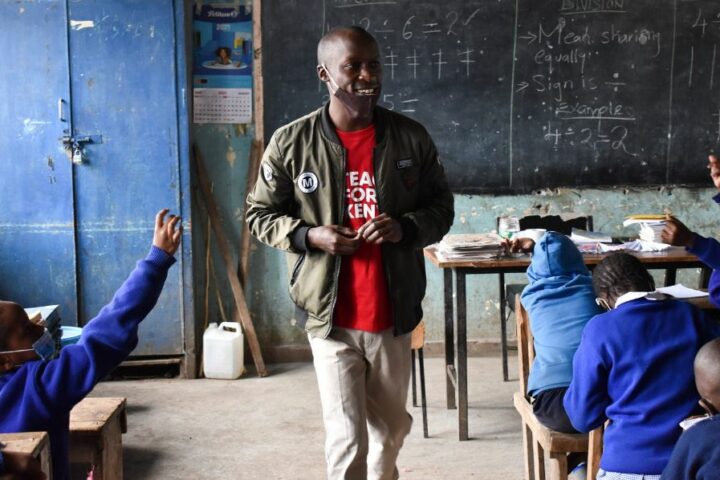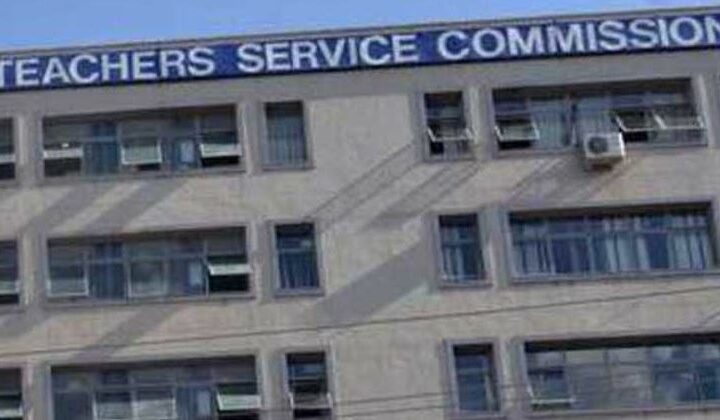 President William Ruto announced that the government will purchase land from absentee landlords to resettle squatters along Kenya’s Coast. This move aims to address historical land injustices that have left thousands without legal ownership.
President William Ruto announced that the government will purchase land from absentee landlords to resettle squatters along Kenya’s Coast. This move aims to address historical land injustices that have left thousands without legal ownership.
Speaking at the funeral service of Mzee Kingi Mwaruwa Mkweha, father of Senate Speaker Amason Kingi, in Magarini Constituency, Kilifi County, President Ruto confirmed that funds have been allocated for compensating absentee landlords.
“We have made progress, and we now have money to pay off these absentee landlords,” he said. He emphasized that while the process will take time, the government is committed to resolving the squatter crisis.
“It will not be completed in one or two years, but we will deliver on our promise to largely sort out the squatter problem at the Coast.”
Taskforce to Vet Absentee Landlords
To facilitate this initiative, the president has tasked Senate Speaker Amason Kingi and Cabinet Secretaries Alice Wahome (Lands), Hassan Joho (Mining), and Salim Mvurya (Sports) with identifying and vetting legitimate absentee landlords for compensation.
Additionally, Ruto assured squatters in Kilifi that ownership disputes over African Development Corporation (ADC) land in Magarini are being resolved. He pledged that title deeds will be issued later this year.
The funeral was attended by key leaders, including Deputy President Kithure Kindiki, Prime Cabinet Secretary Musalia Mudavadi, Governors Gideon Mung’aro (Kilifi), Issa Timamy (Lamu), and Abdulswamad Shariff (Mombasa), along with National Assembly Speaker Moses Wetang’ula.
President Ruto also outlined plans for a week-long tour of development projects across Lamu, Tana River, Kwale, Kilifi, Mombasa, and Taita-Taveta counties. He reiterated his commitment to ensuring equal development opportunities nationwide.
“I am committed and unapologetic in making sure that there is equity in the Republic of Kenya,” he affirmed.
On matters of national identification, Ruto pledged that all Kenyans would undergo the same vetting process, eliminating past discrimination against border communities, including those in Kilifi.
“We should all be treated equally. I am shocked that there are people who are angry at this move,” he said.
Electricity, Roads, and Infrastructure Development
Regarding electricity expansion, the president announced that Kilifi County will receive KSh2 billion from the KSh10 billion initiative aimed at improving power access in 14 marginalized counties. He also confirmed that the Rabai-Bomani-Kilifi transmission line, launched last year, will be completed by June 2025.
Additionally, the Kilifi-Weru-Malindi transmission line, a KSh9 billion project, is progressing well and will provide reliable energy to power industries, boost businesses, and create jobs.
On infrastructure, Ruto noted that the KSh2.1 billion Baricho bridge, which links Malindi and Magarini, is 98% complete and will be commissioned soon.
Deputy President Kindiki urged Kenyans to support fellow citizens seeking high-profile international positions, citing former Prime Minister Raila Odinga’s recent bid for the African Union Commission chairperson seat as an example.
“The success of one Kenyan is the success of the entire country,” Kindiki said.
Prime Cabinet Secretary Mudavadi emphasized the government’s duty to keep citizens informed about its projects and progress.
“There are some faith leaders who take to the pulpit and say the government should not be broadcasting what it is doing for wananchi. That is unconstitutional,” Mudavadi asserted.








